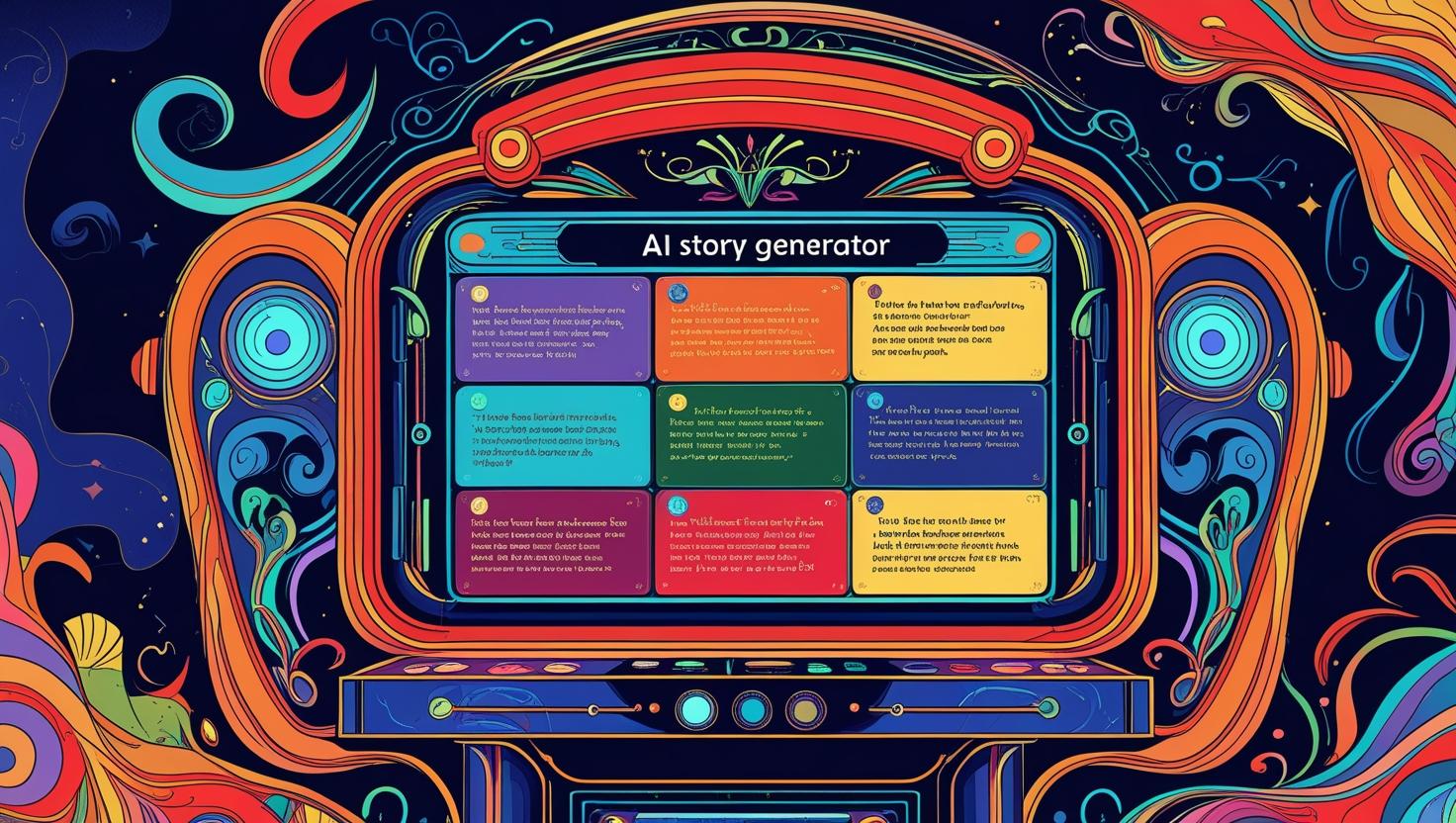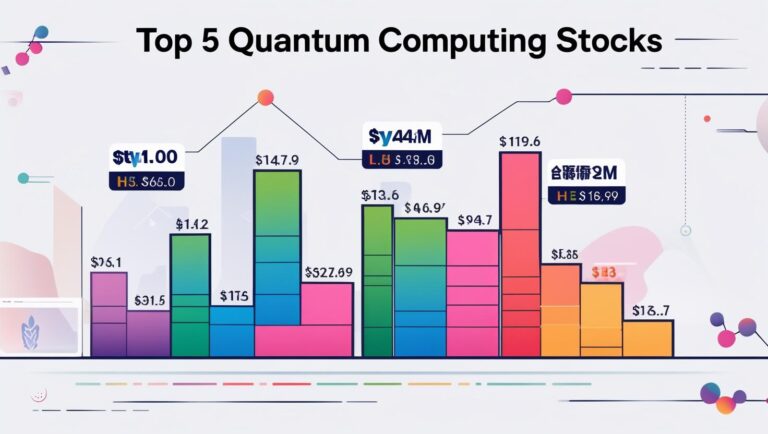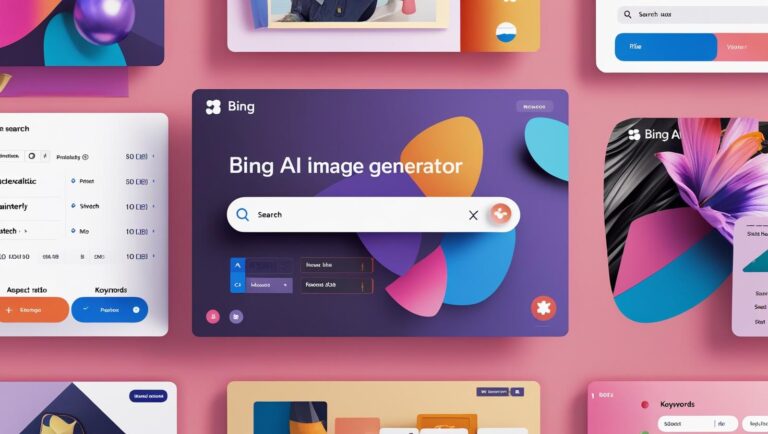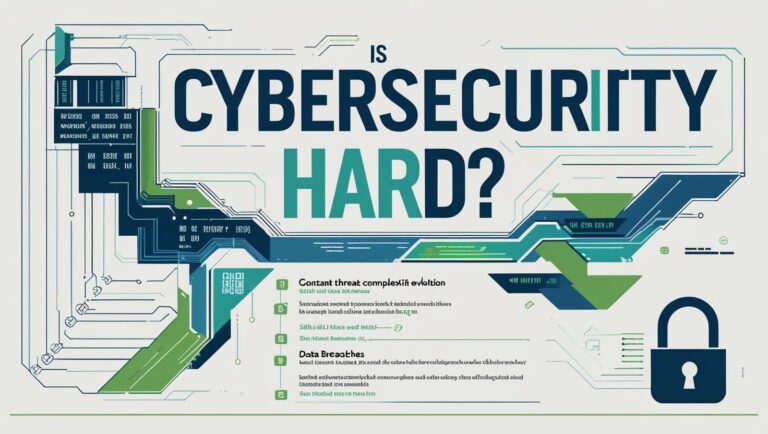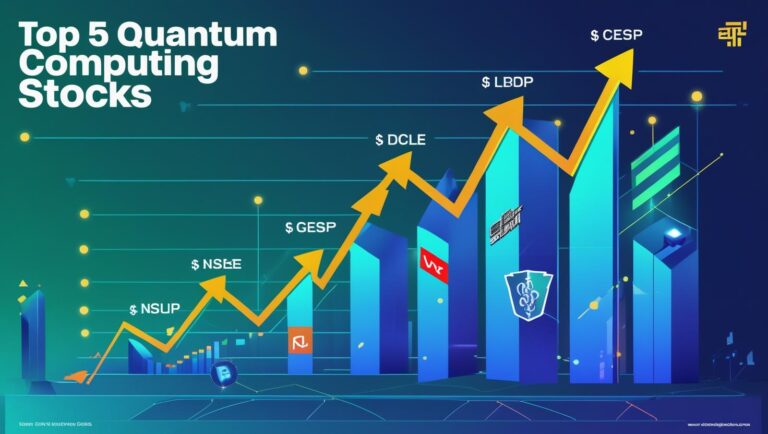AI Story Generator: 5 Surprising Benefits for New and Experienced Writers
You have a scene, a character, or a theme in mind, but when you sit down to write, the words simply don’t flow. Does that sound familiar? Writer’s block can strike hard whether you’ve been writing for years or not. Imagine a digital co-pilot that assists you in steering but does not write the story for you. That’s what a strong AI story generator provides: a creative sidekick rather than a shortcut.
By 2025, AI story generators are doing more than just producing text; they are revolutionizing the way we think about storytelling as generative tools get more sophisticated, quick, and customized. Creativity is not stifled by these tools. They unlock it when used properly.
It’s Not Cheating; It’s Collaborative Creativity
A common myth is that using an AI story generator somehow makes you less of a writer. But let’s reframe that. Think about an architect using drafting software. The tool doesn’t dream up the blueprint, it helps build it. AI works the same way for writers. It takes your fragments—an image, a line, a vibe and expands them into something fuller.
You’re still in control. You choose the direction, the style, the emotion. The AI just helps move things along. That’s not cheating; that’s creative momentum.
Your Style, Amplified; Not Replaced
Most people worry an AI will flatten their voice into generic mush. And that can happen—if you don’t guide it. However, more recent AI story generators are made to recognize genre cues, tone, tempo, and even syntax from a small number of sample lines. It can imitate the rhythm while maintaining the soul if you give it a sentence in your own style.
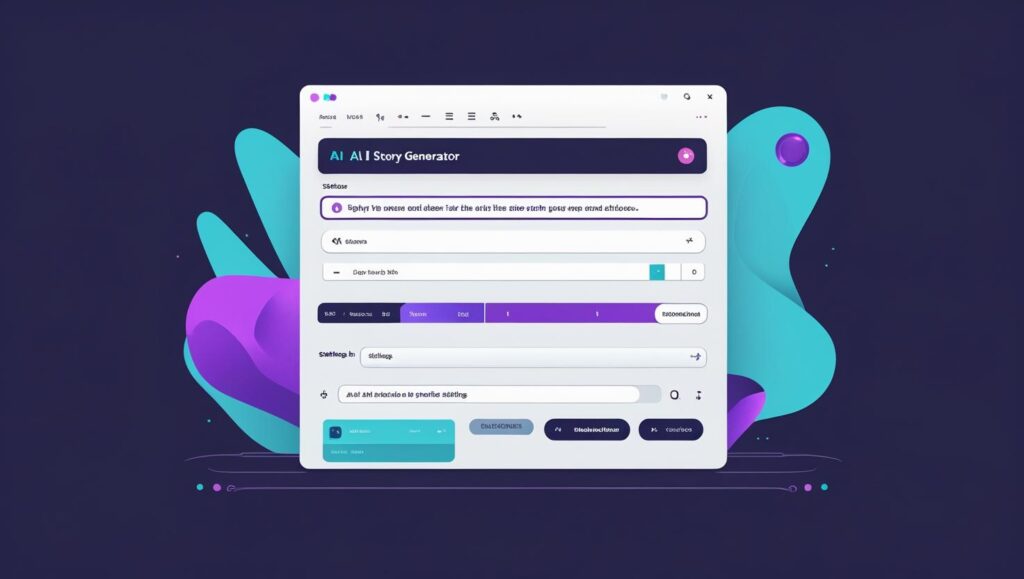
A horror writer can make the AI hum with dread. A romance writer can shape it into tender moments. A sci-fi author? They’ll find the AI understands world-building better than some beta readers.
From Overwhelmed to Organized
Have you ever sat with your third cup of coffee going cold, twenty open tabs, and a notebook full of incomplete outlines? Even experienced writers can become overwhelmed by the initial phases of writing, such as plotting, pacing, and dialogue. This chaos is streamlined by an AI story generator. And if you’re looking for the perfect visuals that align with your story, use bing ai image generator to craft the relevant images related to your story.
Request that it map a three-act structure, recommend dialogue beats, or assess how your villain’s arc stacks up against popular tropes. It’s not replacing your work, it’s reducing decision fatigue. With fewer blocks in the way, you move forward with focus. That means fewer rewrites, fewer doubts, and more actual writing time.
This isn’t just about speed, it’s about stamina. Writing is mentally exhausting. Letting AI carry the load in early drafts preserves your creative energy for the deeper work.
A Safe Sandbox for New Writers to Practice In
New writers often quit before they start. Why? Because the learning curve is brutal. Structure, voice, pacing, dialogue, it’s a lot. AI story generators act as a practice field where beginners can safely try things, mess up, and learn.
You can feed it a premise and watch how it unfolds a scene. You can compare how your ending differs from what it suggests. Every output becomes a lesson. It’s interactive writing school, minus the pressure.
And for ESL writers or neurodivergent creatives, AI offers accessibility. It helps close the gap between vision and expression. That opens up storytelling to more voices. That’s not just useful, it’s powerful.
Unexpected Sparks: How AI Triggers New Ideas
The best ideas are sometimes triggered rather than discovered. Your story takes an unexpected turn for the better with just one odd sentence and one strange twist. AI excels at this kind of surprise. Because it draws from diverse sources and combinations, it can deliver a curveball you’d never expect.
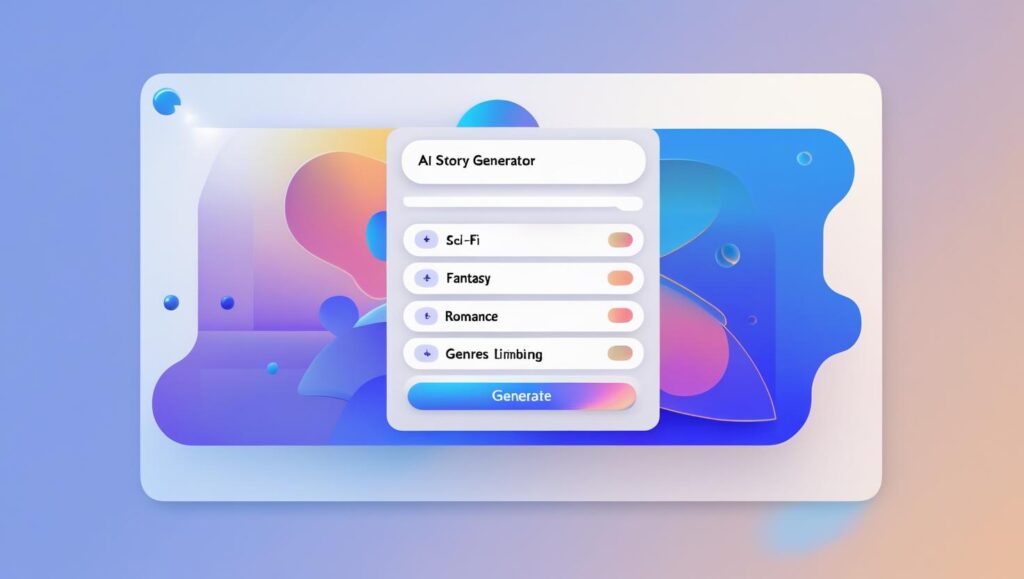
Maybe you input a scene where two lovers argue. The AI throws in a line about a memory from childhood. Suddenly, the entire emotional depth shifts. It’s not randomness—it’s reinvention.
The AI becomes a mirror one that doesn’t just reflect, but refracts. It bends your input in ways that help you see more clearly. Not always right, not always usable—but always stimulating.
The Ethical Line: Ownership, Voice, and Integrity
Let’s be clear: AI should never be used to pass off full stories as entirely human-written, especially for professional publishing. Ethics matter. If you’re using AI to brainstorm, shape structure, or tweak prose, that’s collaboration. If you’re feeding a prompt and publishing the output as your own, that’s a misrepresentation.
The key difference? Intention and transparency.
Professional writers today are expected to disclose AI involvement when relevant, especially in journalism or paid content. But in fiction, it’s a tool like a thesaurus, or a writing group. Respect it, guide it, and let it enhance your process not replace your passion.
Who Should Use an AI Story Generator?
The real question is: who shouldn’t? If you write stories, novels, blogs, screenplays, even social media fiction this tool can help. Experienced writers use it for idea testing and structural refinement. New writers use it to gain confidence and feedback. Content marketers use it for engagement hooks and narrative tone.

It adapts to your needs. And in 2025, that’s what makes it different from the clunky models of the past. Today’s AI story generators don’t just finish sentences. They inspire them.
Visual Tools to Enhance the Writing Experience
For those who like more than just text, interactive platforms like Napkin.ai help visualize your thought threads. You can create narrative webs, scene clusters, or even emotional pacing arcs. For stylistic rephrasing or variation, Quillbot.com remains popular though it always tweaks outputs to maintain authenticity.
Grok.com, known for analytical breakdowns, can help dissect your writing’s structure, tone, and rhythm. Use it to study AI-generated suggestions and how they compare to your own drafts.
YouTube and Facebook communities also offer screen-shares of writers using AI tools in real-time, which can be helpful if you’re new and hesitant.
FAQs
Q1: Can I publish a story written with an AI story generator?
Yes but always revise and inject your unique voice. Don’t publish raw AI output.
Q2: Is using AI cheating in creative writing?
Not at all. It’s a tool. Cheating only happens if you misrepresent your work as fully human-written when it’s not.
Q3: Are AI story generators expensive?
Many are free or freemium. Paid versions offer better personalization and context retention.
Q4: Can AI understand emotions in stories?
It mimics emotional patterns well, but only you can bring real emotional authenticity.
Q5: How do I keep my writing style intact when using AI?
Train the AI with your tone or revise its outputs. Always guide, never rely blindly.
Conclusion
Let’s drop the fear. AI won’t take your pen, it just sharpens it. When treated like a partner, not a crutch, AI story generators can help you overcome blocks, refine your vision, and even fall back in love with writing. This isn’t about replacing the writer. It’s about empowering the story.

